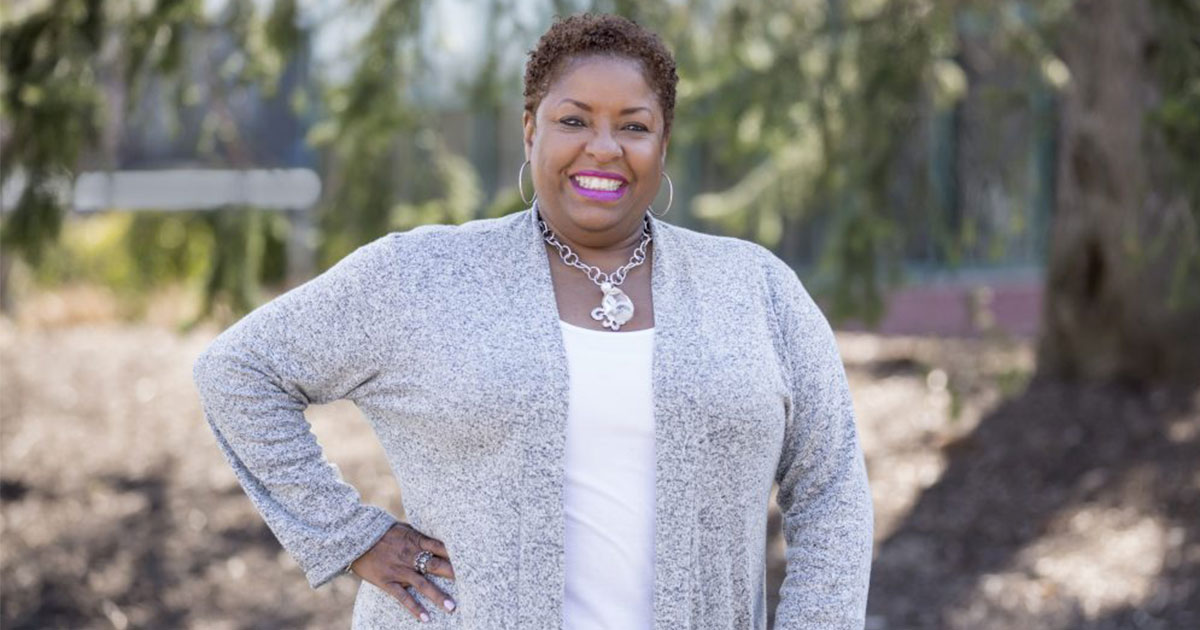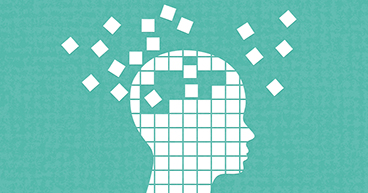
When she was diagnosed with stage 2 breast cancer in February 2014, Karen R. powered through eight rounds of chemotherapy for breast cancer, a lumpectomy surgery and six weeks of daily radiation therapy for breast cancer. Her treatment was completed in November 2014, but even as she regained her physical strength, her mind was slower to recover.
Karen didn’t notice it at first. It took her sister pointing it out to help her see what was going on. She was having trouble remembering things that, prior to treatment, she’d have recalled with no problem.
For example, during her visits at Cancer Treatment Centers of America® (CTCA), Atlanta, Karen would listen carefully during her appointments and afterward share the information with family or caregivers. But later that night or the next day, that information was gone from her memory. Her sister would ask her questions related to the visit, and Karen said she couldn’t recall the answers.
“It was like I didn’t know what she was talking about. It was like I’d never heard it,” she says.
It turns out that, like many cancer patients, Karen was struggling with “chemo brain.”
What Is chemo brain?
Chemo brain is a mental fogginess that occurs after cancer treatment. Most commonly linked to chemotherapy, the condition may also occur after surgery, radiation therapy or hormone therapy.
Research points to the effects treatments may have on certain cells in the brain. Specific chemotherapy drugs may prevent some brain cells from reproducing or maturing properly.
The deterioration of cognitive function may occur during or after treatment, and it may last for just a few months or continue for years. Everyone’s experience is different, but many people report memory problems, trouble concentrating, difficulty multitasking and a general mental fog.
In Karen’s case, she tried to continue working, but the demands of her career proved to be too much. She couldn’t function the way she used to and had trouble keeping up, so she made the decision to take a medical leave.
There were practical implications for her daily life as well. “I would write things down in a notebook,” she explains, referring to reminders, phone numbers, important dates and other types of information she used to help her function on a daily basis. “But then I’d lose the notebook. Or I would write down notes, but then I couldn’t remember or process what the notes meant.”
For Karen, chemo brain led to memory loss along with trouble processing information and forming practical next steps. “I knew the big picture of what I needed to do—like, say, I needed to get across town—but I couldn’t figure out the next steps to achieve it,” she says.
Emotions can run high
It wasn’t only logistical issues that Karen experienced but also emotional ones. She described chemo brain as “scary” and “emotional,” saying that, at times, she would just cry because it was so difficult.
Karen found that stress heightened her symptoms, and visual clutter (like a buildup of items in her home) could be overwhelming for her. “Visual clutter wreaked havoc on my brain. If things were unorganized, I didn’t know where to start or what to do to fix it, and that feeling carried over into other tasks in general” Karen says.
Staying organized may help
Karen worked with a cognitive therapist, who helped her work through her symptoms. The therapist gave her strategies for taking notes, including how to separate work tasks from personal life and making notes more visual so she could envision her priorities on the page.
The therapist also suggested using brain games and apps, which you can find online for your computer, tablet or mobile phone. The games challenge your brain—requiring you to match shapes or sequence letters and numbers, for instance. Karen uses the games frequently and did so during treatment as well.
At home, she also tried to minimize visual clutter and worked on reducing stress. “On a scale of 1 to 10, with 10 being the max, stress pushed my symptoms to 13 or 14,” she says.
Karen’s chemo brain symptoms lasted for about a year and then started to dissipate. It still pops up now and then, however, especially when her work life gets hectic. At times, when she was at work, “it was like they were speaking a foreign language,” she says.
Fortunately, her coworkers and managers have been understanding and would help by sending her additional recaps of meetings and other important information as necessary.
Advice for friends and loved ones
If you have a friend or family member struggling with chemo brain, you may be an immense resource of support. Karen’s sister was a great help to her, especially by not displaying annoyance and helping her joke about and make light of the situation.
She would also laugh together with friends, who would patiently point out when Karen repeated herself or forgot things. “I often now ask, ‘Have I shared this already?’” she says.
Karen specifically shared advice for patients’ loved ones.
“Friends and family may not believe the patient at first,” she says. “They may think they’re making the symptoms up. This makes it worse, especially if they don’t treat the patient with dignity. So please, if your loved one is showing signs of chemo brain, be patient. You may need to repeat things.
“And make light of it when you can,” she adds. “Don’t make the person feel worse, because they may already feel like they’re burdening you.”
Throughout her cancer journey, Karen says she’s learned to be intentional about her life. She knows her stress triggers and points of frustration and takes intentional steps to avoid them. For instance, Karen travels frequently for work, so she packs the night before and plans to arrive at the airport early. Instead of driving herself to the airport, she arranges for transportation and doesn’t leave anything until the last minute (as was her practice prior to cancer treatment).
“Being organized is critical,” she says. “I take my time and pace myself, because if I get overwhelmed, I will have a meltdown and cry. So, I do what I can to not get overwhelmed.”
Another tip that’s helped Karen is listening more and being less reactive. She’s realized that she can just listen and respond when she’s asked, as opposed to having to immediately come up with a response or a solution. She’s accepted that she’s not responsible for fixing everything, and this helps her keep stress levels manageable.
Karen advises others who may be experiencing the symptoms of chemo brain not to be too hard on themselves. Accept the situation and your current level of mental function, and take it one day at a time. “Don’t feel guilty, don’t fight it; don’t beat yourself up,” she says. “Chemo brain might not happen. But if it does, it’s OK.”
Learn how spiritual support may comfort cancer patients of faith.



